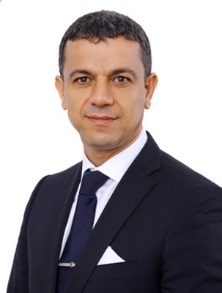MANAMA: Mahmood Rafique, Editor: The Islamic banks and financial institutions are keen on switching to mobile banking and payments system as 64% say yes to adopting new technology.
This was revealed in the 5th edition of the Global Islamic Bankers’ Survey (GIBS) Report launched by CIBAFI on Tuesday.
The findings show that the Mobile Banking/Payments were ranked at the top for adopting technology by Islamic banks with 64% approval rate, followed by Open Banking (60%) and Machine Learning (ML) and Big Data (44%). The General Council for Islamic Banks and Financial Institutions (CIBAFI), the global umbrella of Islamic financial institutions has launched today the 5th series of its flagship publication, the Global Islamic Bankers’ Survey (GIBS) Report with this year’s theme “Beyond Digitalisation: Fintech and Customer Experience.”
GIBS 2020 Report was launched via webinar on Tuesday.
Following four successful editions of the annual CIBAFI Global Islamic Bankers’ Survey Report, the fifth edition of this unique publication tackles a trending topic for the financial industry. The report reflects the views of more than 100 Heads of Islamic banks from 35 countries regarding Fintech adoption and customer experience’s elevation.
The on-line launch of the report was inaugurated by welcoming remarks from Dr. Abdelilah Belatik, Secretary General of CIBAFI followed by a video presentation of the main findings of the GIBS 2020 Report.
“Research is a crucial element for Islamic finance industry (IFI) development especially in these times of COVID-19 crisis. What makes CIBAFI GIBS Report unique is that it monitors Islamic bankers’ perspectives towards IFI and provides recommendations that are of high relevance to the industry’s needs. The report measures the optimism level of Islamic bankers; identifies the greatest risks they are facing; their approach on specific aspects of Islamic financing activities; and much more. We hope this survey report will provide a positive impact on the industry,” Dr. Abdelilah Belatik on the launch of the GIBS 2020 Report, said.
The findings of the survey showed up that Mobile Banking/Payments ranked as the top adopted technology by Islamic banks with 64% approval rate, followed by Open Banking (60%) and Machine Learning (ML) and Big Data (44%). The survey revealed the main strategic approaches to integrate Fintech solutions by Islamic banks. 61% of Islamic banking officials favour buying services from Fintech companies, followed by in-house development of Fintech applications (53%) then joint partnerships with Fintech ventures (51%). Adopting Fintech solutions brings increased operational efficiency and scale, enhanced customer experience and reduced operating expenses/cost, confirm the Islamic banking heads.
In order to improve customer experience, the report revealed the top practices that Islamic banks are currently focusing on; the product diversification was on the top with 87% approval rate, followed by employee training and monitoring (73%) and the use of social media and offering Omni-channel banking (71%).
The online launch also witnessed a panel discussion that explored and shared different insights and experiences of the experts in the industry regarding the current practices and challenges faced for the adoption of financial technologies (Fintech) and elevating customer experience. The panelists included Peter Casey, Consultant, General Council, for Islamic Banks and Financial Institutions (CIBAFI); Mohammed Kateeb, Group Chairman and Chief Executive Officer, Path Solutions; Hamid Rashid, Founder, FINTERRA Group and Professor Chris WH Chan, Associate Dean (Asia), Ivey Business School.
This initiative is aligned with CIBAFI’s second strategic objective of Research and Innovation. CIBAFI continues to support the Islamic financial services industry through various activities and initiatives, including providing industry stakeholders with a platform to discuss emerging issues, representing the industry at major global financial events, and sharing knowledge through specialized publications and comprehensive training programmes.



